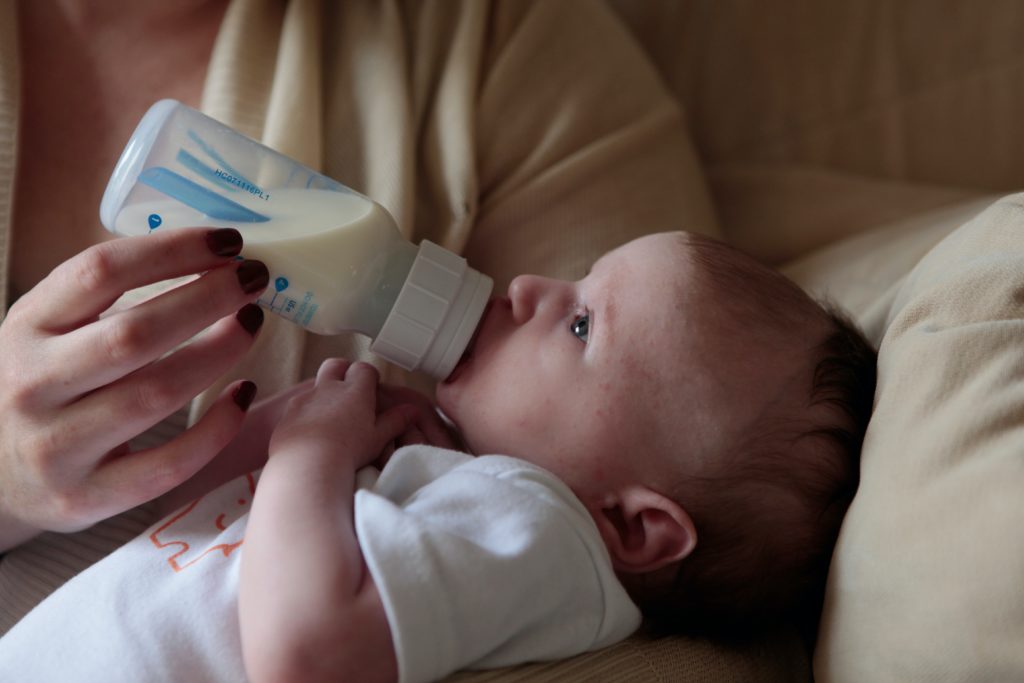You can face a lot of challenges as a breastfeeding mother. Breastfeeding might not always be the fantastic experience that you wanted to carry your baby to wake in the middle of the night, with heavy breasts. The milk drunk smile of your sleeping young child brings you special pleasure. But the reason many moms breastfeed is often motivated by the belief that they have the best nutrition for their infant. You’ve already heard repeatedly about how your baby can keep breast milk healthy. This is because there are antibodies in your milk that punch immunity. Scroll down for the benefits of antibodies in breast milk.
What Are Breast Milk Antibodies?
Breast milk and colostrum contain immunoglobulins. They ‘re a protein that helps a mother to pass on her baby immunity. In particular, breast milk contains IgA, IgM, IgG, and IgM (SIgM), and IgA (SIgA) Secretory Immunoglobulins.
In particular, colostrum contains high levels of SIgA, which protects the baby in the nose, throat, and digestive system throughout.
If a mother is exposed to bacteria and viruses, her own body may produce additional antibodies that are transmitted through her breast milk.
It has been shown that even donor milk produces fewer antibodies than mother’s milk — probably due to the pasteurization process necessary when milk is donated. Infections and diseases are more likely to be combated by babies consuming their mother’s milk.

Magical Benefits Of Antibodies In Breast Milk
Breast milk contributes to the baby’s immune system by supplying fats, proteins, and other essential nutrients and antibodies. Such antibodies in breast milk support both the mother and her baby. Here are some benefits of antibodies in breast milk.
1.For a Premature Baby
A preterm baby also known as the premature or preterm baby has no solid immune system. A premature baby has an elevated chance of getting various forms of deadly illnesses and ailments due to an underdeveloped immune system. Breast milk is of crucial importance for premature babies. It can help grow their immune system and combat bacterial infections through the presence of antibodies within the mother’s milk.
2. For Daycare Babies
Parents may often prefer to send their babies to daycare centers. When a young baby goes to a daycare center, the baby will be exposed to various types of germs, viruses, and bacteria that can increase their risk of getting infections and diseases. The baby’s breastfeeding will improve his immune system and help him fend off different infections to which he may become exposed.
3. For a Sick Mom and Baby
If a mom who is breastfeeding gets sick, she will continue to breastfeed her baby in most cases. If a mother who is breastfeeding has a common illness such as cold, cough, or flu, breastfeeding does not benefit your infant. And if the baby is exposed to some infection, however, the antibodies in your breast milk will be passed on and preserved to your infant. In most cases, your baby may not even notice or fight your illness better than you do.
Babies getting sick is very common, particularly in their first year. You will keep breastfeeding your baby if your child gets sick. Your breast milk not only provides a sick infant with nutrition and warmth. It also includes antibodies that can help baby combat disease or infection.
If breastfeeding is more of a challenge than you expected, recognizing all the advantages that breast milk provides can be beneficial.

Pumping and Storing Breast Milk
Any of the bacteria and germs on your skin will invade your breast milk storage container along with your breast milk while you are pumping your breast milk. The immune factors in breast milk help avoid the growth of this bacteria and cause your baby to get sick.
If you’re pumping it’s best if you could give fresh breast milk to your infant. This is not always practical though. So, following the safety guidelines for breast milk collection and storage is important:
- Breast milk stored in the refrigerator preserves much of the properties that are immune.
- When breast milk is frozen, it loses some, though not all, of its protective immune factors.
- Heating breast milk at high temperatures can kill antibodies and the other immune factor in your breast milk, especially in microwaves that are not recommended.
Make sure that you express and securely collect your breast-milk when you want to pump. If breast milk loses any of its nutrients, it’s still a better bet than formula milk for your infant.

When Does Breast Milk Contain Antibodies?
Your breast milk is filled from the very outset with antibodies that increase your immunity. Colostrum is full of antimicrobials, the first milk a mother provides for her baby. You have also made them a wonderful gift by giving your newborn breast milk early on.
Yet breast milk is the blessing it continues to offer. The antibodies in your milk will continue to adapt to fight against whatever germs you or your child may be exposed to, even after your child has eaten solid food and moves around the house.
Researchers believe that prolonged breastfeeding has a significant advantage. Currently, the World Health Organization only recommends breastfeeding for the first 6 months of your child and then continued breastfeeding for the first 2 years of your child’s life or beyond.
For the first 6 months, the American Academy of Pediatrics suggests only breastfeeding. They encourage continued breasts by incorporating solid foods for the first year and beyond, as the mother and the baby mutually wish.
How Breastfeeding Helping To Develop An Immune System For A Baby?
Breast milk is the greatest source of nutrition for newborns and is a good combination of nutrition and antibodies. The first thick-yellow breast milk produces high levels of antibodies that help the baby combat infections and diseases. However, as long as the mother continues to breastfeed her baby, even after this thick milk loses its consistency, it keeps transmitting antibodies through breast milk to the infant. Breast milk contains vitamins, minerals, proteins, fats, and enzymes required for the optimum growth and development of infants and babies. Babies who are breastfed are less likely to develop ear infections, asthma, rashes, and other such illnesses compared to babies who are fed on formula. In fact, even when the baby is weaned off, the antibodies present in breast milk continue to provide the baby defense. The advantages of breast milk can not be offset by any volume of formula milk.
The best milk for newborns and babies below the age of 1 in breast milk. Besides supplying your little one with antibodies, it can also ensure your baby’s safe growth. Therefore, breastfeed your baby every day and spend some quality time with him.













